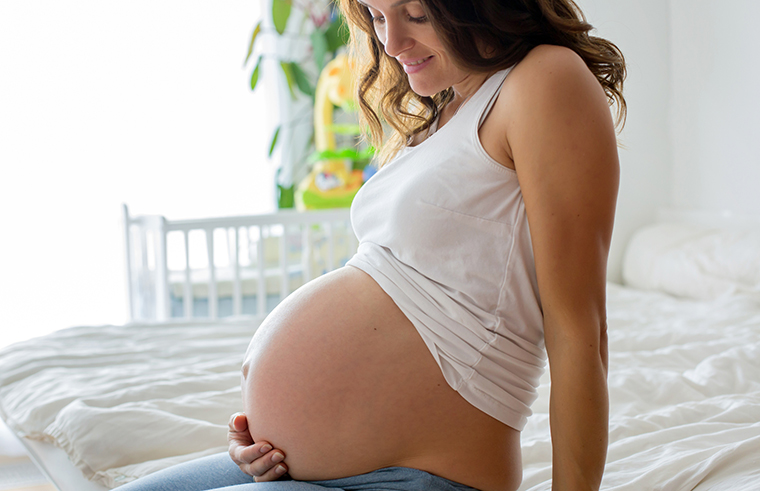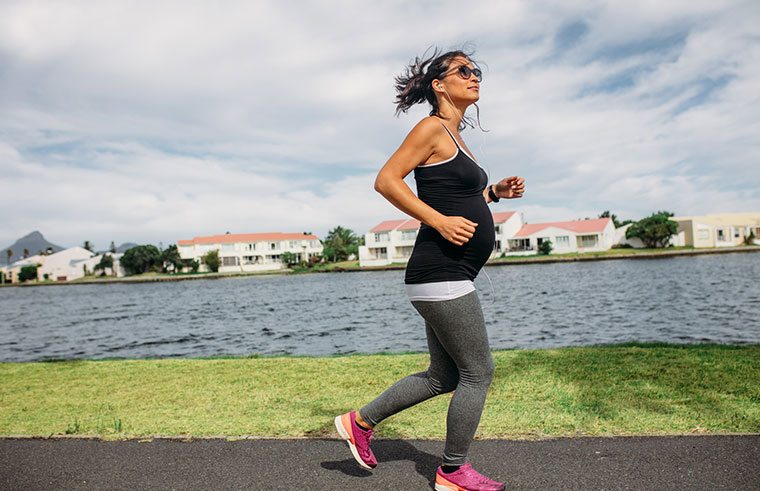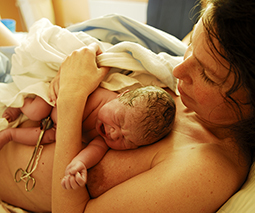Pregnancy myths: What to believe and what to ignore

If you’re pregnant, you’ve no doubt been faced with a long list of dos and don’ts – what you should and shouldn’t do, what to eat and what to avoid.
But how much of this is scientifically proven? And how much comes from old wives’ tales? David Addenbrooke, obstetrician and co-author of 9 Months: The Essential Australian Guide to Pregnancy sheds a little light on the subject and helps separate fact from fiction.
Listen to David Addenbrooke on Feed Play Love:
What can I eat?
There are foods to avoid when pregnant such as soft cheeses, undercooked meat, even salads – but why?
“The three things that we worry about women getting from food in terms of bacterial and pathogens are listeria, salmonella and toxoplasmosis,” says David. “Listeria is thought to be in things like soft cheeses, undercooked meats or deli meats and toxoplasmosis can be found in dirt.”
David suggests washing veggies and lettuce for salads, avoiding the soft cheeses and sticking to pasteurised milk.
“You want to have pasteurised milk, and that should knock off any bugs, and the sort of stuff you get in the supermarket in the fridge is probably fine,” he says.
“Usually if you get listeria, you’ve got really bad gastric symptoms and diarrhoea, body aches and fevers. And if we know about it, we can treat it quite well with penicillin, but it can have an effect on the foetus,” says David. “You don’t get listeria every time you eat these things, but it’s more about being cautious about where bacteria could be.”
What about fish?
Sushi is usually a healthy food option, but when pregnant, it can pose a problem.
“It’s once again with the food preparation and the idea of under-cooked food, so sashimi, for example, might be a little bit off the radar,” says David.
Cooked fish is a better option. “Fish is good for the Omega 3 fatty acids and baby’s brain development. But some guidelines recommend limiting fish to three serves a week because of another concern about mercury,” says David.
Avoid strenuous exercise?
Exercise is fine during pregnancy. “We should encourage people to exercise to their normal capacity continually,” says David. “There’s been no evidence that exercising leads to miscarriage or preterm labour in otherwise low-risk pregnancies.”
However, David advises avoiding exercise where there’s any risk of bumping the baby, such as skiing or horse-riding or an activity that involves holding your breath.
“A lot of the recommendations for exercise in pregnancy are about strength training and aerobic exercise,” says David. “We don’t like the sort of exercises where you are deliberately holding your breath and avoiding oxygen for prolonged periods of time.”
Yoga is very popular with pregnant women, but some care should be taken.
“Doing yoga beyond your capacity or starting for the first time when you’re pregnant and going into those high impact sort of dance twisting manoeuvres would probably be inadvisable – but gentle yoga is perfect,” says David.

Bringing on labour
There’s no scientific proof that sex helps bring on labour, though the myth surrounding it does make a certain sense.
“The thing that we use to get people into labour artificially is a hormone called prostaglandin. We know that there are levels of prostaglandin in the semen so that could help,” says David.
“We also know that physically stretching the cervix with fingertips — which a doctor would do and is called a membrane sweep — there’s good evidence that it helps bring on labour in people who are really ready to go.
“So that sort of stimulation of the cervix during sex would probably be beneficial as well, but I can’t give you any hard scientific data.”
There’s nothing harmful about having raspberry leaf tea, which is supposed to help bring on labour; however, he recommends not drinking it until 36 weeks.
“We don’t want you to have anything that could have an association with softening the cervix and starting labour until we know the baby is ready to come,” he says.
Curries are also renowned for bringing on labour, but David says anything that stimulates the gastrointestinal tract could give women tummy cramps, which are not causing labour even though they might feel like they are.
David’s top tip
If you’re seeking other alternative therapies during pregnancy such as acupuncture, make sure you see a competent practitioner.
“The main thing is just to make sure that you see a practitioner who knows what they’re doing,” says David, “and is used to dealing with pregnant women.”
 Join the Bump and Baby: The Fourth Trimester online event! With live expert sessions, FREE newborn routine guide & the chance to WIN a $500 Nursery gift voucher. Click here to find out more and make sure you don’t miss a thing!
Join the Bump and Baby: The Fourth Trimester online event! With live expert sessions, FREE newborn routine guide & the chance to WIN a $500 Nursery gift voucher. Click here to find out more and make sure you don’t miss a thing!









